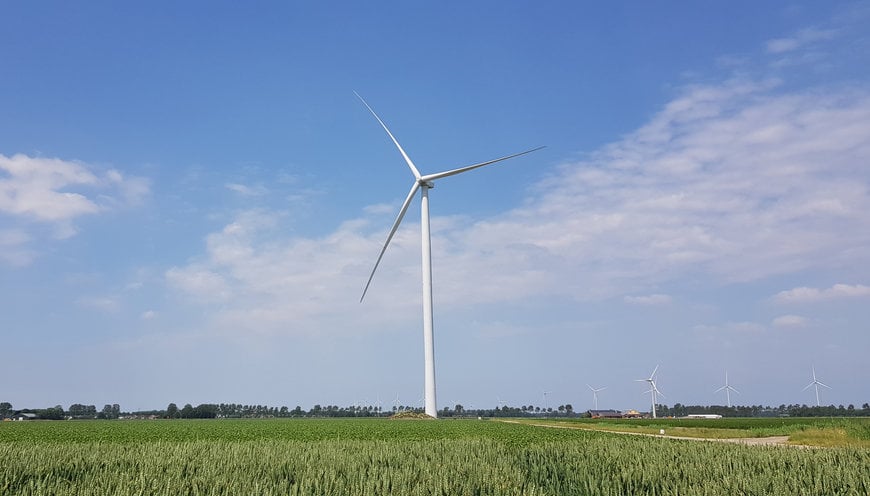GE Renewable Energy and TNO to test new research on blade tip improvements aimed at reducing levelized cost of energy (LCOE) of offshore wind power
A consortium of GE Renewable Energy, LM Wind Power and TNO, are collaborating on the TIADE project to develop technologies and design methods for more efficient operation of next-generation wind turbine rotors, wind farms with large rotor wakes, and demonstrate them in the field.

- Project TIADE (Turbine Improvements for Additional Energy) to develop and validate innovative wind turbine blade improvements, blade add-ons to boost the performance of offshore wind turbines.
- Innovations developed in the project will be tested on a full-scale research wind turbine using inventive field measurement techniques.
- Prototype turbine operational, measurements to begin soon
The TIADE project touched a new milestone with the research wind turbine becoming fully operational. The innovations developed in the project will be tested on the full-scale 130 m diameter turbine recently installed in Wieringermeer, Netherlands. The turbine is powered by two-piece blades, which allows the outer 12 m of the blades to be replaced by several innovative tips.
“Our revolutionary two-piece blade design has helped us drive down the levelized cost of energy. Here, in this project, we are applying new technology to significantly increase speed and reduce cost associated with testing and validation,” said Ben Hendriks, Chief Engineer Turbine System Integration at LM Wind Power.
Peter Eecen, R&D Manager at TNO Wind Energy stated: “Innovations in wind turbine blades are essential to make renewable wind energy even more affordable. We are proud we will validate blade innovations and aerodynamic simulations tools in the field, together with GE Renewable Energy and LM Wind Power. Thereto advanced measurement techniques are used in a unique set-up that combines detailed wind inflow measurements and unsteady pressure measurements on the blade.”
Various innovative blade add-ons, such as spoilers, serrations, vortex generators, ‘turbulators’ and blade tip improvements will be validated using advanced measurement techniques. The results will accelerate widescale application of rotors with higher annual energy production and thus a considerably lower cost of offshore wind energy.
These solutions can be applied to newly manufactured wind turbines in the factory, but they can partly also be retrofitted to existing offshore wind farms. With both options available, implementation of the technologies in offshore wind farms can be done from 2023.
The consortium comprising of GE Renewable Energy, LM Wind Power and TNO was established in 2020 to test new research on blade tip improvements under the three-year and ten months TIADE project, with partial funding from the ‘Topsector Energiesubsidie’ of the Dutch Ministry of Economic Affairs.
www.ge.com

